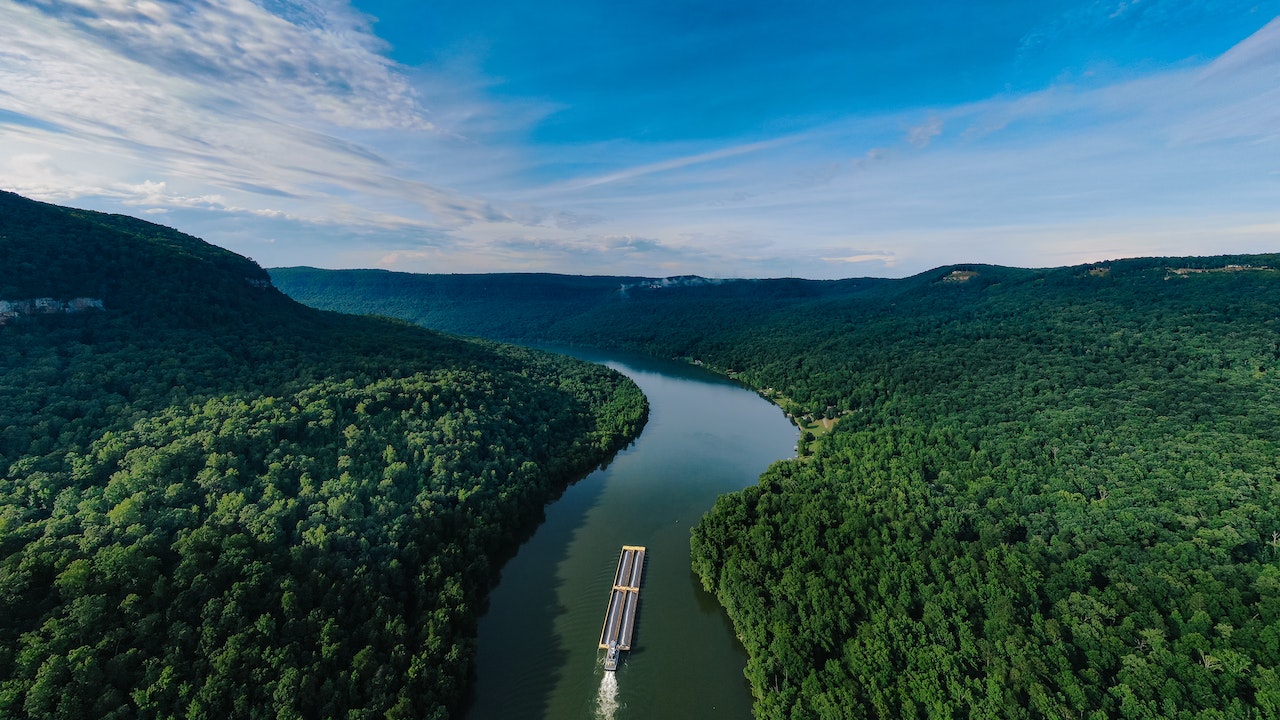Global warming, deforestation, fires combined could hasten Amazon demise, study finds
The new research "shows how close the Amazon forest is to a tipping point," said climate scientist Carlos Nobre of Brazil's University of Sao Paulo, who was not part of the study. Deforestation is exacerbating the risk, with fewer trees generating moisture that rains back down to nourish the forest.

Drought and heat driven by climate change and other factors threaten to cause the collapse of South America's lush Amazon rainforest system, scientists said on Wednesday in a study that found that nearly half of it could be pushed to a tipping point by 2050. "The region is increasingly exposed to unprecedented stress from warming temperatures, extreme droughts, deforestation and fires, even in central and remote parts of the system," the researchers wrote in the study published in the journal Nature.
The researchers estimated that 10% to 47% of Amazon's current forest cover will face these combined stressors by 2050. "Once we cross this tipping point, maybe we cannot do anything anymore," said ecologist Bernardo Flores of the University of Santa Catarina in Brazil, lead author of the report. "The forest will die by itself."
It is time, Flores added, to declare a "red alert" for the Amazon, the world's largest tropical rainforest. With warming temperatures sapping the region of moisture, the rainforest is steadily turning into savannah or other forms of degraded ecosystems more likely to burn in wildfires, according to experts. This transformation marks a major change for the Amazon, where most fires now are fanned by ranchers or farmers clearing land. As the land dries out, more wildfires could erupt as they do in the drier pine forests of the U.S. West and Canada.
For their analysis, the researchers looked at forested areas and considered climate and human factors, including past and projected temperatures and rainfall, forest road-building trends, and land management status such as whether a forest is a preserve or is maintained by Indigenous groups. "Our intention was to bring all the pieces of the puzzle to the table and try to understand the importance of each one of them for the whole picture," Flores said.
The study marked the latest attempt to gauge whether - and when - the rainforest ecosystem might shift, which could be a catastrophic event given the Amazon's importance in absorbing large amounts of climate-warming carbon dioxide from the atmosphere. The researchers acknowledged some uncertainty in the projected outcomes, but said the trend detailed in the study was clear - that the ecosystem is approaching a shift.
Aside from the possible "savannization" of the rainforest, the researchers mentioned two other possible outcomes: the expansion of degraded forest, or an increase in open-canopy ecosystems dominated by fire-tolerant species. "The pathways are different, but they they're all connected to the loss of biodiversity," said study co-author Marina Hirota of Brazil's University of Santa Catarina.
For Indigenous communities or others that rely on the forest for resources, these changes would spell disaster, Hirota said. "If you live from the forest," Hirota added, "... you won't have anything."
Brazil's Environment Minister Marina Silva last year said saving the Amazon requires a global effort on scale with the post-World War Two Marshall Plan. The new research "shows how close the Amazon forest is to a tipping point," said climate scientist Carlos Nobre of Brazil's University of Sao Paulo, who was not part of the study.
Deforestation is exacerbating the risk, with fewer trees generating moisture that rains back down to nourish the forest. Already, about 18% of the Amazon rainforest has been destroyed, according to Nobre. If that figure reaches 20-25%, Nobre said, the forest overall could shift to savannah.
Speaking about the wide range of outcomes envisioned in the new research, ecologist Nicola Clerici of the Universidad del Rosario in Colombia's capital Bogota said more studies are needed to increase the level of scientific certainty. "This research topic should be on the global agenda," added Clerici, who was not part of the new study.
(This story has not been edited by Devdiscourse staff and is auto-generated from a syndicated feed.)










